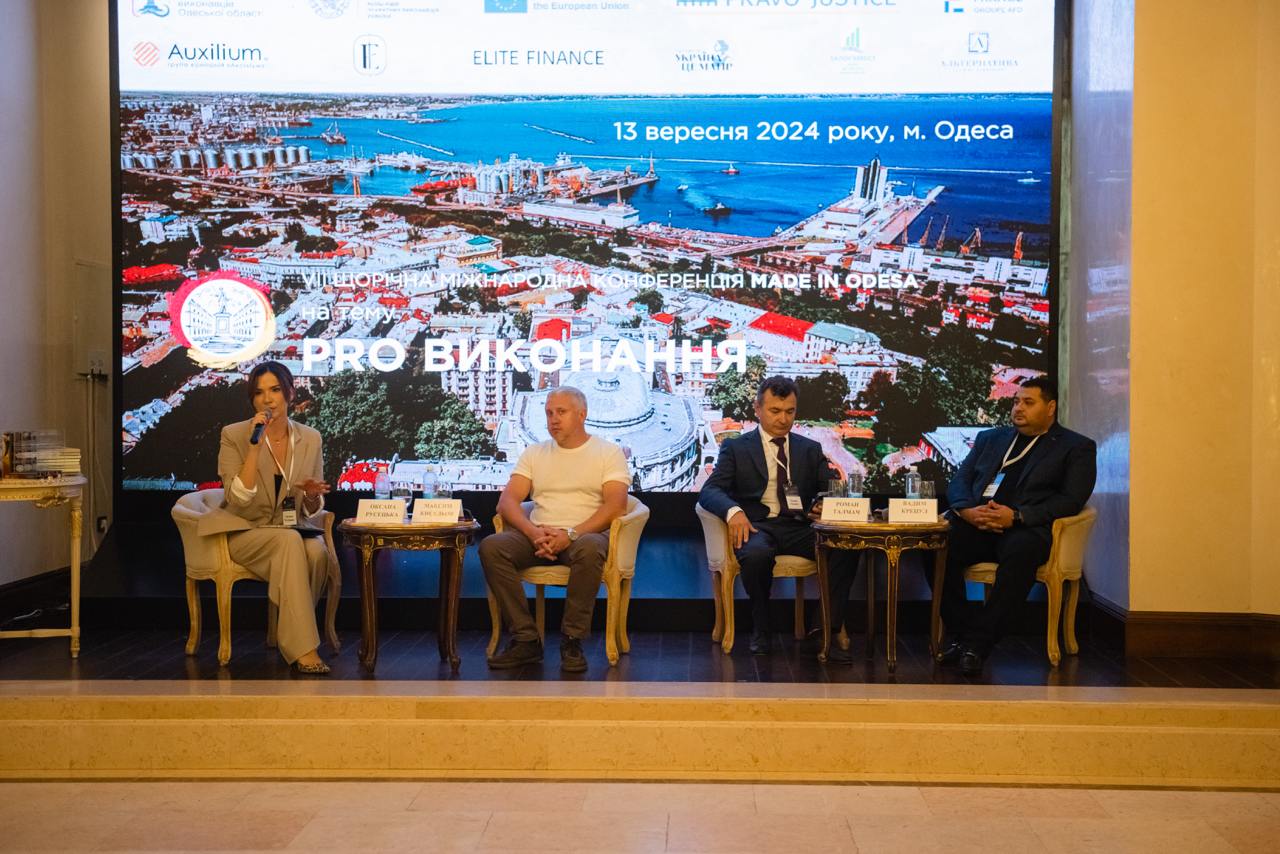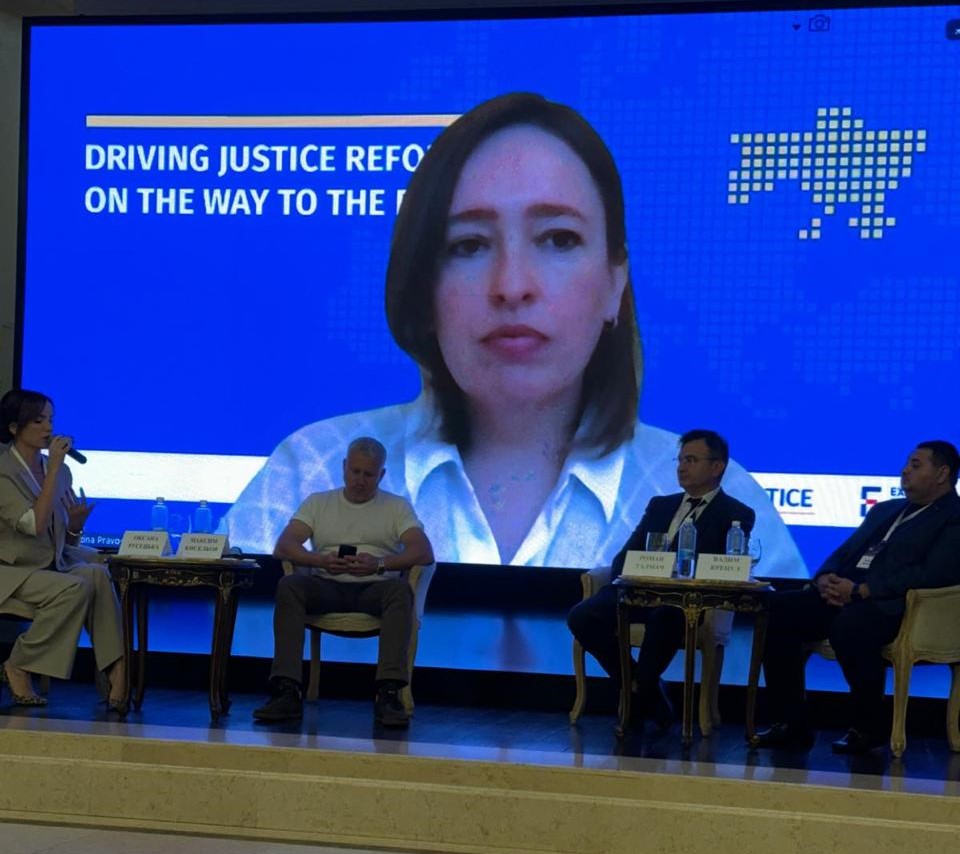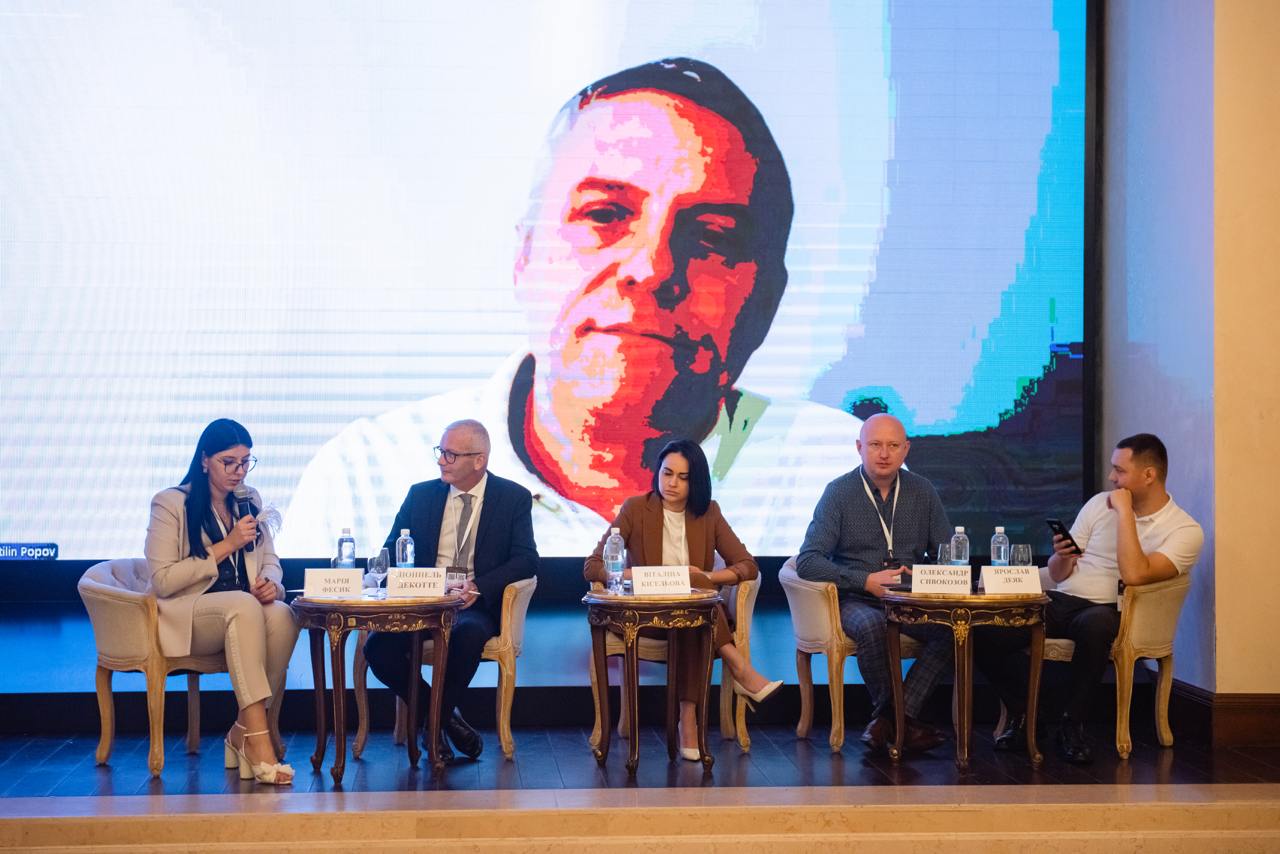VII Annual International Conference on Enforcement Proceedings was held in Odesa with the support of EU Project Pravo-Justice

On September 13, EU Project Pravo-Justice, together with the Association of Private Enforcement Officers of Ukraine and the Council of Private Enforcement Officers of the Odesa Region held the VII Annual International Conference “Pro Enforcement”. The Conference became an effective platform for exchanging opinions among PEOs, judges, representatives of the banking sector, notaries, and bankruptcy trustees. In addition, PEOs from Moldova, Georgia, Lithuania, alongside international experts of EU Project Pravo-Justice also took part in the event.

Iryna Zharonkina, Enforcement and Protection of Property Rights Component Lead of EU Pravo-Justice, emphasised that the issue of enforcement of court decisions is an element of the negotiation process between Ukraine and the EU within the framework of the European integration process.
“According to the EU Enlargement Methodology revised in 2020, Chapter 23 “Justice and fundamental rights” and Chapter 24 “Justice. Freedom. Security” are the most important ones throughout the entire negotiation process. No subsequent chapter will be closed until benchmarks within the previous two are met,” said Iryna Zharonkina. According to her, improving the enforcement system in Ukraine is Ukraine’s obligation within the framework of the Ukraine Facility Plan – an agreement under which the EU provides Ukraine with financing in the amount of €50 billion. This program provides for the following steps in the field of enforcement of court decisions: improvement of national legislation on the enforcement of property-related court decisions and court decisions of a binding nature, modernisation of the Automated System of Enforcement proceedings, digitisation of enforcement proceedings, etc.
Vasyl Krat, justice of the Civil Cassation Court of the Supreme Court, pointed out the problem of the lack of a data collection system on the enforcement of court decisions.
“The lack of real statistics regarding the enforcement of certain decisions does not allow us analysing the effectiveness of the mechanisms proposed, for instance, by the judicial practice which is aimed at resolving the problematic issues of enforcement proceedings,” said Vasyl Krat. The judge also briefed the conference participants on the current practice of the Cassation Court of in the field of enfrocement proceedings, in particular regarding judicial control over the enforcement of court decisions, deficiency of enforcement actions, removal of seizure from indivisible property, abuse of rights in enforcement proceedings.
The conference participants paid much attention to exploring foreign experience in the field of enforcement. Thus, Roman Talmach, Head of the National Union of Judicial Officers of Moldova, said that Moldovan judicial officers, in addition to the enforcement of decisions, have a number of additional functions. They can record facts, serve procedural documents (that not related to enforcement proceedings), conduct auctions, and act as a third-party trustee.

For his part, Katilin Popov, International Expert of EU Project Pravo-Justice, outlined common challenges in the field of enforcement in both Ukraine and the EU, while also developing on how European countries respond to such challenges. The latter include: social vulnerability of the population; formal nature and cost of enforcement; accountability and responsibility of judicial officers; and reluctance of qualified and motivated young professionals to become part of the judicial officer profession.
“In the EU countries, the state, together with civil society organisations, pays considerable attention to the prevention of social vulnerability. The Netherlands, Finland, the UK, and Estonia are the most successful in addressing this challenge. In the EU, there is a trend towards the development of business services that can be provided by judicial officers. Here, France, Belgium, and Estonia are on the top of the list. Another common vector for the development of the profession in the EU countries is the automation and digitisation of services in the field of justice, including the enforcement of court decisions. British, Belgian and Dutch professionals have the most progressive ethical codes,” said Katilin Popov.
Lionel Decotte, French bailiff, spoke about the peculiarities of the bailiffs’ work in his country. According to him, it was a serious challenge to strike a balance between strict regulation and liberal nature of the bailiff profession.
"Until 2019, the activities of bailiffs were over-regulated – there were restrictions on the number of bailiffs and the structural organisation of their work, and the territories in which they could carry out their activities. Due to such excessive restrictions, there was an impression – with both the State and citizens – that the profession was completely monopolised and barely accessible. That is why the authorities would decide to hold the enforcement reform: two professions – bailiff and auction organiser – were merged; that step allowed increasing competition, improving access to legal services, and reducing the cost of services for citizens and customers,” said Lionel Decotte.